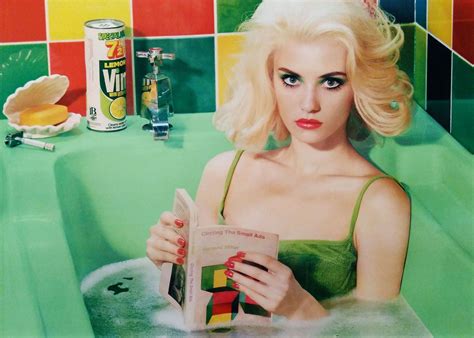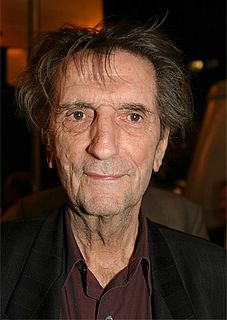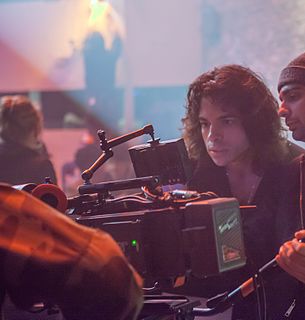A Quote by Miles Aldridge
I'm inspired heavily by film influences - David Lynch's Blue Velvet, Federico Fellini, Alfred Hitchcock, Pedro Almodóvar, and what I see in the cinema - so there is a linking, an interweaving between memory, cinema and contemporary life, which the women in my pictures encapsulate.
Related Quotes
Directors who have inspired me include Billy Wilder, Federico Fellini, lngmar Bergman, John Ford, Orson Welles, Werner Herzog, Stanley Kubrick, Alfred Hitchcock, Francis Ford Coppola and Ernst Lubitsch. In art school, I studied painters like Edward Hopper, who used urban motifs, Franz Kafka is my favorite novelist. My approach to film stems from my art background, as I go beyond the story to the sub-conscious mood created by sound and images.
To evoke the classic period of Italian cinema in a little film seemed like a great, fun thing to do. I had relations to that period. I had known Fellini and I had known Antonioni. I had made a movie with Antonioni and I had visited Fellini in his studios. So, it seemed like something worthwhile doing. You bring yourself to that mythical cinema.
I remembered watching the film from Alfred Hitchcock, 'Dial M for Murder,' and he shot almost all of that movie in one room. There was a genius in what Hitchcock did by manipulating things in that room so that you could see the distances between things like the tables and the vases because of how he used perspective.
Film works when a director and a star have a connection. You know, when there's something telekinetic between them, there's a partnership, it's like alter egos. It's like James Stewart and Alfred Hitchcock, or Fellini and Mastroianni. I'm not comparing, I'm just saying, if you can come into a relationship where the director and star have such a bond, it's so much easier to make a movie.
MORE CONSISTENTLY THAN EVER I WAS TRYING TO MAKE PEOPLE BELIEVE THAT CINEMA AS AN INSTRUMENT OF ART HAS ITS OWN POSSIBILITIES WHICH ARE EQUAL TO THOSE OF PROSE. I WANTED TO DEMONSTRATE HOW CINEMA IS ABLE TO OBSERVE LIFE, WITHOUT INTERFERING, CRUDELY OR OBVIOUSLY, WITH ITS CONTINUITY. FOR THAT IS WHERE I SEE THE POETIC ESSENCE OF CINEMA.



































